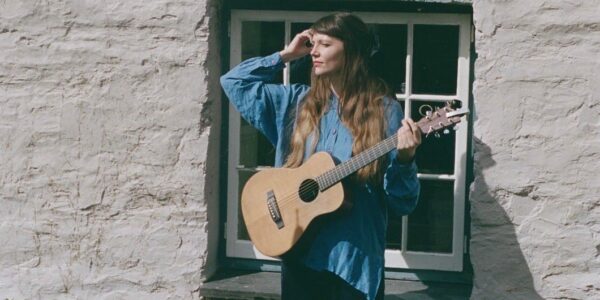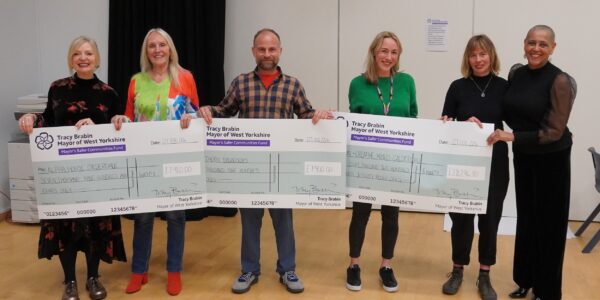Gabriela Blandy, Assistant Centre Director at The Hurst, blogs about her return home after an Arvon week.
There’s no internet to distract you. Apart from breakfast, you only have to cook one meal; the rest of the time you simply turn up, eat, and away to your work in progress. There are up to fifteen other writers who say things like: if you don’t finish this book I am personally going to hunt you down and make you!
Come Saturday, you have several new pages written, thoughts about making changes in your life: get up earlier, read more, write. But by the time you get home, you are feeling a little tired, the kids make a climbing frame of you, your partner can’t stop themselves telling you what a lousy few days they have had at work. You decide to take a bath, think: I must do some writing.
Sitting at a desk, or the kitchen table, or on an easy chair with a pad on your lap, your mind is blank. You clear your throat, think: I need a cup of tea, or a glass of wine.
A few minutes later, sitting back down again, you stare at the pen in your hand.
It’s the house – it’s too messy. That’s what’s distracting you. A tidy house will allow you to focus. Or perhaps the pile of ironing. If you can get through that, your character will be waiting for you on the other side – open arms. Or –
Mummy?
You look up to see your youngest in the doorway, naked except for a rubber band that looks worryingly tight halfway up their soft, chubby arm. God, these kids are helpless without you!
You stand up, work the rubber band off, say: come on, let’s get you in the bath.
Your notebook has fallen to the floor. Later, while hurrying to turn off the rice, which you suddenly realise must have boiled dry, you kick it under the sofa. It is months later, when looking for an earring, that you discover it. At first you don’t recognise the notebook as yours.
If only you could react to that half-written scene of dialogue with the same urgency as when you suddenly remember Tim and Sally are coming over for dinner: leaping up from the sofa and rushing out to the shops, remote control still in your hand.
Why is it that when we want to write we can’t just write?
Well, firstly, who says we can’t?
Is that what you were told on your Arvon week?
No.
In fact, weren’t you told the opposite? Weren’t you told, when you finished reading your work on the Friday night, that your fellow writers wanted to hear more? Didn’t you discover in your tutorial that you had something that was worth continuing with?
‘Good image’, ‘would be interesting to know more’, ‘too abrupt’, ‘nice!’, ‘evocative’, ‘I got a bit lost’, ‘well observed’, ‘love this’, ‘can this be more vivid?’, ‘fantastic sentence’.
This is some of the feedback I received on my Arvon course last week. But it hardly touches on the experience. There were all those conversations I had whilst waiting for the kettle to boil. As steam rose, I realised my book was interesting to people other than myself. After an exercise in one of the workshops, a fellow writer got me to realise that surely my character would be thinking of something on the plane as she travels to Canada to find her hero; and if she really isn’t thinking of anything, then I need to make something of that instead. Invaluable help.
Then there was the overhearing of all the other conversations going on around me and the midnight writing exercises (empty wine bottles on the table) that made it clear writing is not a lonely pursuit: it can’t be. Although, there is a point at which you have to close the door, put your arse on the chair and get on.
How do you know when to give up?
This and similarly toned questions were asked during my Arvon week.
What happens if you have submitted to agents and not heard anything back? Or if twenty publishers have rejected your manuscript?
As long as you are enjoying yourself then keep going, Naomi Wood says.
But what about the analogy that writing is like pulling your insides out; through your nose?
This answers your question, surely? If we are still drawn to the blank page, despite the fact that we are retching on our own oesophagus as it double backs on itself, then we can call ourselves a writer. We write because to not write is to forsake something nameless, which burns for its very desire to be identified.
The washing up, work, kids’ bathtimes, your favourite TV show have become priorities because you have made them so by attending to them every day. Think how long you have been ‘practicing’ collapsing on the sofa at the end of the day. Bad habits take dedication to break, and new habits require similar dedication to form. Neither are impossible.
Make writing a priority. Start small, as you would when taking up any new activity. Try ten minutes a day, an hour at the weekend. I often use a dictaphone – so based on that, I would be ‘writing’ just over 4,000 words a week. Even if only a quarter of that was any good, I’d still have enough for a first draft by the end of a year.
When you sit down for your ten minutes, make sure that the only interruptions will be your own: close the door, switch the phone off, disconnect your broadband. It’s just you and your head. If you are clear about that then you can take responsibility for the excuses that come. And they will come!
I’m not in the mood. I’m distracted by an argument I had at work. My little girl is sick. I’m hungry. That car alarm is bothering me. Did I pay the gas bill?
These are all obstacles that you have chosen to put in the way – our ‘Dance of Avoidance’, which I have written about previously. Who wants to begin pulling their insides out through their nose?
In a beautiful essay, Adam Phillips says: it is impossible to imagine desire without obstacles. This almost unavoidable twining suggests something further: ‘the object of unconscious desire can be represented only by the obstacles to the conscious object of desire.’
So, before you have your ten minutes writing, spend a minute in silent honesty. Acknowledge your obstacles – whatever pressing needs you feel. Name them. Write them down. In this moment, you are in shadow: your guilt at taking this ‘me time’ (when there are your family’s packed lunches to make) has blocked the sun of your true aspiration, without which you cannot be fuelled. So find it. Take your obstacles, study them, turn them over to find your desires: I wish I had some ‘me time’. But you do! A whole ten minutes of it.
Yes, but I’m a crap writer.
The shadow has come over again.
If the obstacle is your sense of inadequacy, then your desire would be a feeling of worth. Nobody ever became a great writer by not writing a word, by sitting around, wishing they weren’t rubbish. Write to become great and see how the sun emerges from the clouds again. For ten minutes, hold it there, feel its warmth.
I choose one word for my ten minutes, which often becomes twenty, and sometimes even half an hour. I have a good app for this, which gives me a random word every time I press a button. Then I write on this word. Sometimes I write as myself, or my character, or both, or neither. There are no rules other than to write for ten minutes. Sometimes I think: well I left my character in the bath yesterday, and now I need to get them on an airplane. There, ten minutes – bath to airplane – no rules, no limits, just write.
Joyce Carol Oates says the perfect state of mind for writing arrives when one starts to write. In order to write you have to turn up. The rest takes care of itself, and before you realise a week has gone by and you are on a new chapter.
Through this, you realise that you have to start in order to begin.
…
Gabriela Blogs here.



